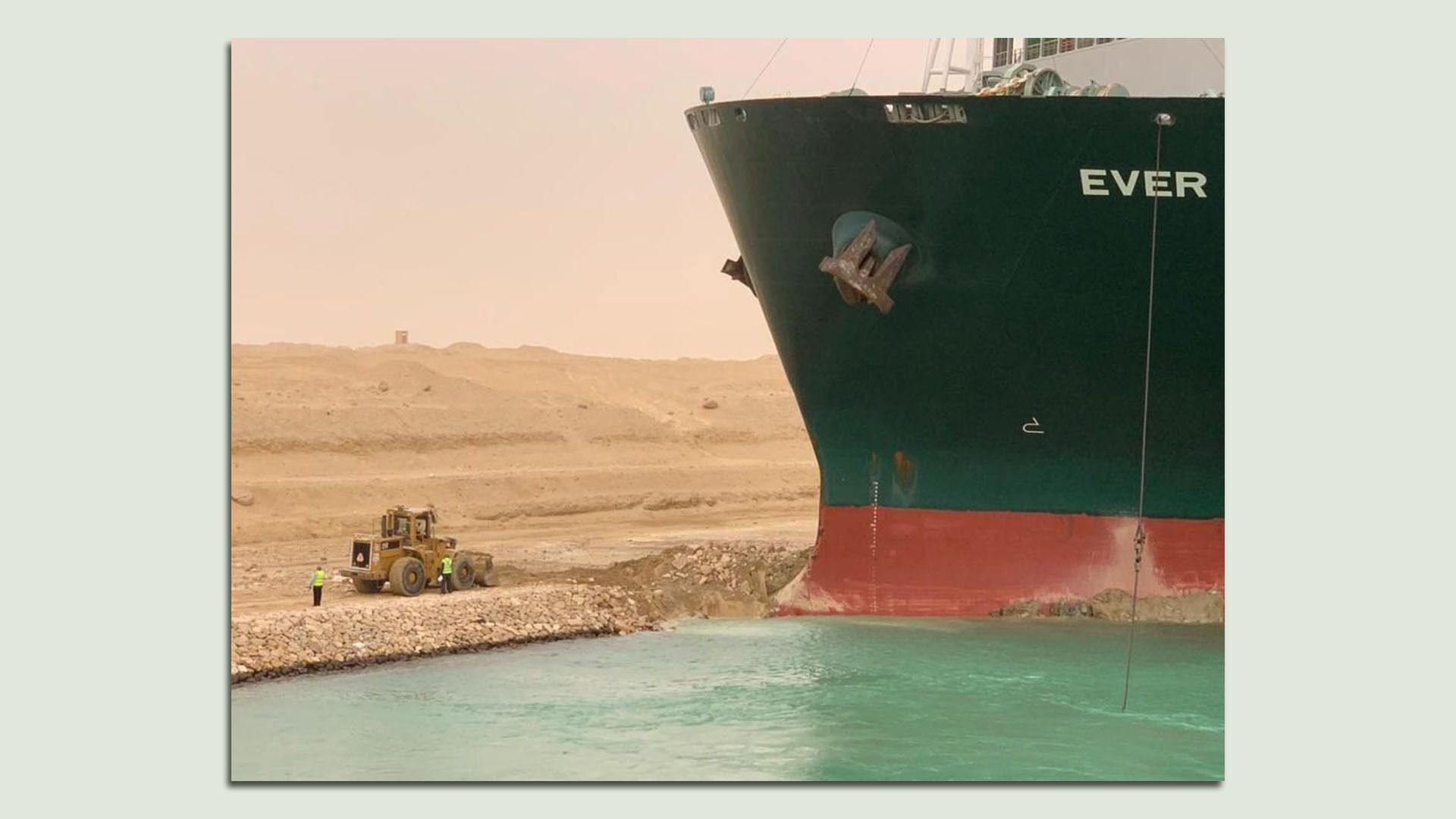Updated Mar 24, 2021 - Energy & Climate
Massive container ship gets stuck in Suez Canal, causing maritime traffic jam
Add Axios as your preferred source to
see more of our stories on Google.

Workers next to a container ship that was hit by strong winds and ran aground in the Suez Canal, Egypt. Photo: Suez Canal Authority via Reuters
